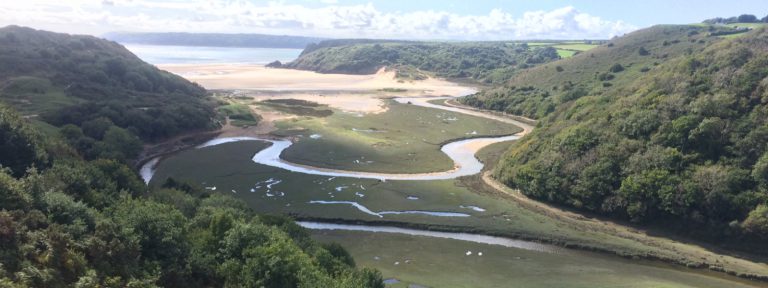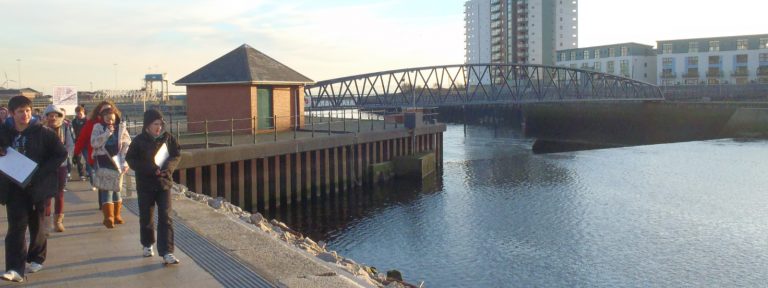Nature days can provide two options for the requirements for Unit 2 of the Made for Wales Ready for the world GCSE Geography starting teaching 2026.
Option 1:
Field work skills day.
This one day field trip will provide skills in the six stages of the enquiry process and provide data for follow up data analysis and presentation.
The focus will be on planning an enquiry and collecting the data:
- Selecting the correct location
- Designing a suitable enquiry question
- Using maps to locate fieldwork sites
- Risk assessment
- Ethical data collection
- Sampling approaches
- Data collection – qualitative and quantitative
This field work day will provide skills required for students to undertake the planning for their NEA assessment for Unit 2.
A number of locations can be visited and can either be linked to where the NEA will take place or contrasting.
Rivers
The characteristics of river landforms, flood risk and management and sustainability.
Coasts:
The characteristics of coastal features, coastal defences and sustainability.
Weather:
Microclimate in built up and natural environment.
Retail in urban areas:
Looking at the concept of place and how it changes using a range of qualitative methods to cover all aspects of the enquiry process.
Land use:
How land use has changed over time.
Sustainability:
Urban and rural sustainable environments using Egan’s wheel
Option 2:
Two day option includes the half a day on field work skills outlined above, followed by a preliminary enquiry focusing on their NEA.
- Investigate potential topics to investigate in their enquiry question
- Identify risks
- Explore selecting data collection sites(s)
- Explore potential data collection methods
- Explore sampling methods and size
- Experiment with results tables
- Try GIS tools such as survey123
Schools will then go back to school and use the skills and experience from day 1 to plan their NEA and undertake task 1 and 2.
Once ready the class will return to the selected location for their NEA and day 2 will provide opportunity for data collection.
NEA day 2:
- Identify location for data collection on site
- Undertake data collection using equipment provided
- Evaluate the sampling and data collection techniques
By the end of day 2 the students will have collected all their data for their NEA and should have completed task 1 and 2. Then back at school they can complete the rest of the NEA using the data.
Support will be given to teachers on choosing the right location to allow all students to access the requirements of the NEA based on the topics set by WJEC.

Relevant Subject(s): Geography
Cost: £240
More Info





